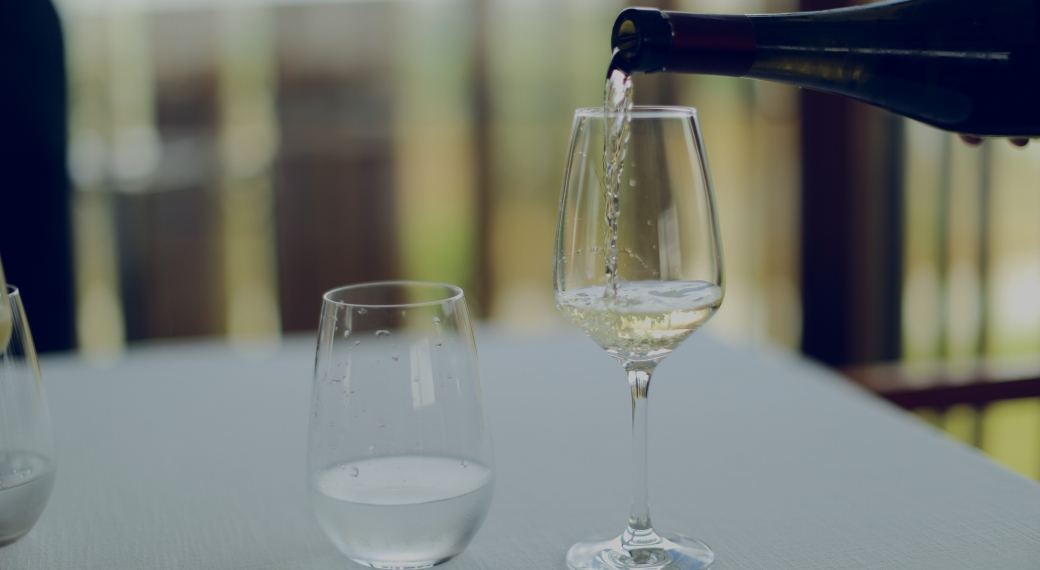Wine Tours
8 Health Benefits of Wine, According to Science
19.06.2020
The wine has undergone numerous studies that have found various connections between improving the quality of life and its consumption.
The wine has undergone numerous studies that have found various connections between improving the quality of life and its consumption.
The first thing to realize is that the quantity matters and most of the studies show the results in glasses per day or week. Anyhow, saving it all during a week to binge over the weekend has been shown to be associated with zero health benefits.
So our advice is that you savor every sip, feel every texture and scent of your wine. Drink it, slowly as it was grown in the vineyards and produced, with love and care. Afterward, enjoy reading this article with your favorite red.
1. Drinking Wine Supports Longevity of Life

Resveratrol is a polyphenol that can be found most especially in red wines. It is a powerful antioxidant that can be found in grape skin and red grape juice. Antioxidants help the body fight off free radicals that can damage our cells and organs.
Studies show that resveratrol promotes health and longevity by increasing the activity of a protein called sirtuins. Sirtuins are responsible for protecting the body against diseases of aging.
Several studies have suggested that alcohol consumption, particularly wines, has shown health benefits that lead to longer life spans. Nonetheless, these studies emphasize that positive benefits only come with moderate consumption.
Key Takeaway: If you want to protect your body against diseases of aging, consuming a moderate amount of wine gives positive health benefits that may lead to long life.
2. Drinking Wine Helps Keep Our Hearts Healthy

Since ancient times, cardiovascular diseases (CVD) have become a known, life-threatening problem for the world.
According to World Health Organization (WHO), up to the present time, many people are still dying annually from CVD than from any other disease and it has been the number 1 cause of mortality and morbidity all around the globe. Many researchers have shown that the intake of polyphenols is associated with a reduced risk of CVD. Wines contain polyphenols which can be actively found in flavonoids that also have putative antioxidant properties.
These polyphenols once again are called resveratrol which may help protect the lining of the blood vessel in the heart. Consuming 1 to 2 drinks per day (4 to 8 ounces) may reduce the risk of CVDs.
Drinking wine may help in decreasing low-density lipoprotein (LDL) also known as bad cholesterol which may cause artery damage while increasing the body’s high-density lipoprotein (HDL) which also known as good cholesterol which may reduce the risk for heart disease. Moreover, wine prevents the formation of blood clots.
Key Takeaway: Drinking 4 to 8 ounces of wine per day may lower the risk of having CVD because of the polyphenols that it contains.
3. The Nutrients In Wine Can Prevent Alzheimer’s Disease

People growing always have the fear of losing all their precious memories. Some believe it is inevitable, however, there are hundreds of ways that one can prevent it. One of these methods is by drinking wine.
Dementia is a chronic or persistent disorder of the mental process that is gradually taking place during old age. Studies show that wine consumption can reduce the risk of having dementia which often leads to Alzheimer’s disease.
Alzheimer’s disease is a developing mental deterioration that can occur as one ages. Again, resveratrol found in wines helps in keeping blood vessels open, so that the essential supply of oxygen and glucose can move freely to the brain to keep it alive and working.
Key Takeaway: Resveratrol which can be found on wine keeps the blood vessels free from blockages that can affect brain functions in retaining memories.
4. Drinking Wine Can Keep Depression At Bay

Depression has been a common but serious disorder for some people because it can affect how you feel, think and handle everyday activities. This may sound contradictory, as most people know that alcohol consumption can worsen one's depression or anxiety. In spite of that, drinking a glass of wine per week can turn into a depression-fighting depressant.
A seven-year study conducted by PREDIMED analyzed 5,500 individuals of light to moderate drinkers and found that individuals who drank two to seven glasses of wine in a week were less prone to depression than non-drinkers.
Again, this is about drinking in moderation because in the same study those who drank heavy alcoholic beverages were more prone to depression.
Key Takeaway: Enjoying two to seven glasses of wine in a week may be your remedy for depression.
5. Drinking Wine Can Give You Healthier Skin

High levels of antioxidants in wine, when applied directly to the skin can inhibit the growth of acne-causing bacteria and are beneficial in maintaining healthy skin. Antioxidants rejuvenate the skin, increase skin elasticity and keep the skin bright and glowing.
In consuming wine as a drink, wine can stimulate blood circulation that can prevent wrinkle formation and skin aging. However, when one drinks in excess, it makes hormone flow lose its balance and may cause skin dehydration and aggravate the chances of acne.
Key Takeaway: Wine contains antioxidants and polyphenols that are essential to keep the skin healthy.
6. Drinking Wine Can Help Prevent Obesity

There is a difference between overweight and obesity. Overweight refers to an excess amount of body weight that may come from muscles, bone, fat, and water. Obesity, on the other hand, refers to excessive amounts of body fat.
Based on Global Health Observatory (GHO) data, at least 2.8 million people in the world die each year as a result of being overweight or obese.
Wine, specifically white wine, contains the antioxidant called epicatechin, quercetin, and resveratrol. These antioxidants can lower levels of cholesterol and may also support weight loss by burning belly fats and by decreasing inflammation commonly associated with obesity.
Key Takeaway: White wine promotes weight loss by burning belly fat and by decreasing anti-inflammatory properties.
7. Drinking Wine Helps Boost Your Body’s Defenses

Daily consumption of wine can boost the immune system according to researchers. Ethanol, the chemical component of alcoholic beverages and wine as well helps boost the potency of vaccinations.
Drinking wine in moderation can help develop immunity that can fight against 200 viruses. Wine contains high levels of antioxidants in the form of flavonoids which can combat strongly against viruses.
As proof, red wine can help cure the symptoms of flu and cold. Polyphenol resveratrol can prevent viruses from multiplying once they have entered the body’s system.
Key Takeaway: Daily consumption of wine helps boost the immune system as it contains a high level of antioxidants that fight against viruses.
8. Drinking Wine Strengthens The Bones

Past researchers have associated moderate wine drinking with improved bone density. As humans age, bones are becoming thinner and weaker. New studies show that drinking wine in moderation may help reduce the risk of having osteoporosis.
Osteoporosis is a bone disease that is most common to women after they have reached the menopausal stage. Osteoporosis makes the bone brittle and more fragile with increased susceptibility to bone fracture.
One or two glasses of wine per day can protect women from thinning bones. It appears that modest consumption of wine bridges the imbalance between the dissolving old bone and the poor production of new bone that can lead to osteoporosis in older women.
Key Takeaway: Osteoporosis can be lessened through modest consumption of wine in older women.
In Portugal, the winemaking process, its vineyards, and wineries are an underlying part of the country's strong culture and identity. See for yourself, and enjoy a trendy country full of traditions and flavors.












